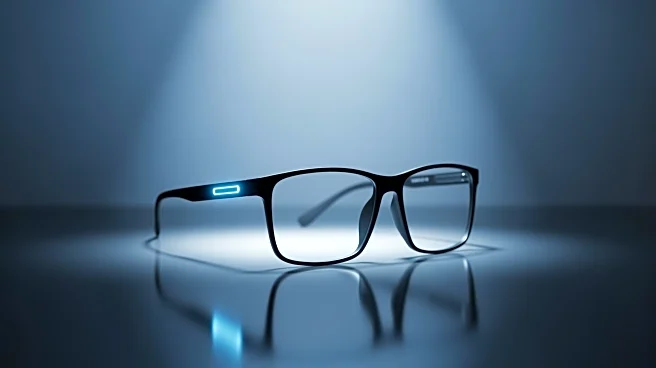What's Happening?
The U.S. liver cancer diagnostics market is anticipated to grow significantly, reaching USD 4.66 billion by 2034, according to Vision Research Reports. The market, valued at USD 3.21 billion in 2024, is expected to expand at a compound annual growth rate
(CAGR) of 3.8% from 2025 to 2034. This growth is driven by the increasing prevalence of liver cancer and advancements in diagnostic technologies. Key segments include laboratory tests, which accounted for the largest market share in 2024, and hospitals and diagnostic laboratories, which held the leading share in end-use. Innovations such as liquid biopsy and AI-powered image analysis are enhancing diagnostic accuracy and efficiency.
Why It's Important?
The expansion of the liver cancer diagnostics market is crucial for improving early detection and treatment outcomes for liver cancer patients. As the prevalence of liver cancer rises, the demand for advanced diagnostic tools increases, potentially leading to better patient management and survival rates. Companies like Abbott Laboratories and Guardant Health are at the forefront of these advancements, contributing to the development of more precise diagnostic methods. The growth of this market also reflects broader trends in healthcare innovation, emphasizing the importance of technological integration in medical diagnostics.
What's Next?
The market is expected to continue evolving with further technological advancements and increased collaboration among healthcare providers, pharmaceutical companies, and research organizations. The integration of AI and digital pathology in diagnostics is likely to enhance the accuracy and speed of liver cancer detection. Additionally, government initiatives and partnerships, such as those by the American Liver Foundation, aim to support veterans and other high-risk groups, potentially expanding access to advanced diagnostic services.
Beyond the Headlines
The development of the liver cancer diagnostics market highlights ethical considerations regarding access to healthcare innovations. As diagnostic technologies become more sophisticated, ensuring equitable access across different demographics and regions remains a challenge. Moreover, the reliance on AI and digital tools raises questions about data privacy and the need for robust regulatory frameworks to protect patient information.
















